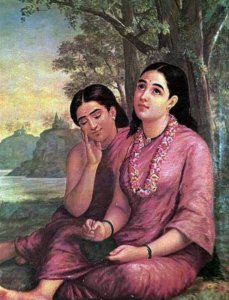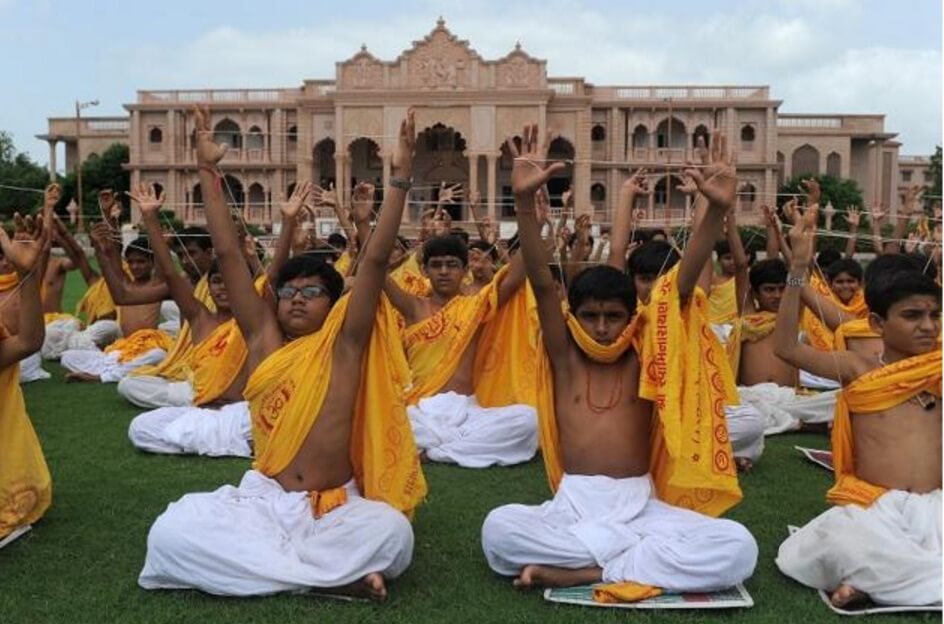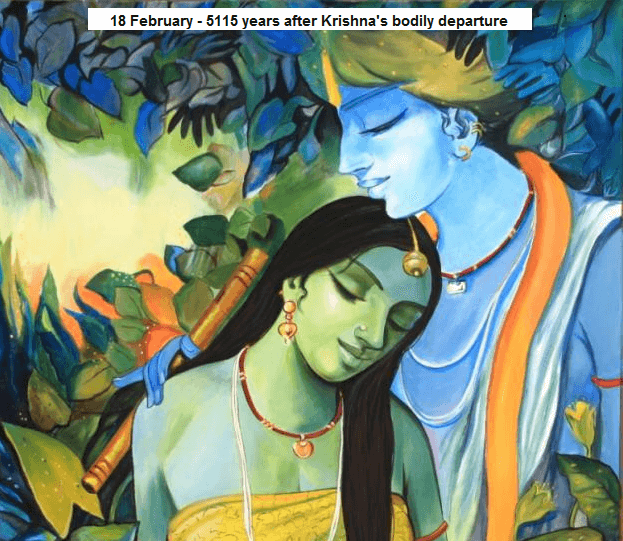Can a Female Recite Gayatri? Can a Woman Learn Vedas? What about Last Rites?
“My grandmother told me that females are not supposed to recite Gayatri Mantra. Is that true Paimam?” a question from Rohini Kini in Kumta.
“Can females learn Veda? Can we perform Vedic rituals, Uday sir?” another question from Anuradha Rao in Guntur.
It’s surprising that questions arise in 21st century! Sanatan Dharma never ever discriminated human beings in terms of gender, race, caste, creed or religions. Then how come such doubts pop us?
“The Goddess of Vedas Gayatri Devi is a woman. The God for wisdom or learning is Saraswati Devi, a woman again. Why shouldn’t you recite Gayatri?” I replied to Rohini. ( https://udaypai.in/gayathri-mantra-misconceptions/ )
“The Vedas are usually addressed as ‘Veda Mata’ (Vedic Mother) so there is nothing to support that women should not be taught Vedas. There were at least 40 women among Vedic Rishis who saw (Vedic verses were not written, it was seen) Vedic hymns…” I informed Anuradha.
“Uday sir, women might have composed Veda mantras. But were they entitled for reciting and performing rituals?” she asked again.
“In Vedic time women were studying the Vedas. Shukla Yajurveda 26.2 says both men and women have rights to study Veda.”
Both boys and girls underwent the vows of Brahmacharya and the Upanayana Samskara. The boys were called Brahmachari and girls were known as Brahma Vadini. They were wearing sacred threads (yajnopavita or janeu). The society was more lenient to women then.
Rigveda (10.159-2.3) verse: “May I get a good husband. Because of Vedas, I will become tejasvi and a powerful spokesperson…”
Taandya brahmana advises that women have to chant saamaved along with veena when a yajna is being conducted. The Atharvaveda says that a girl gets a young and eligible husband only when she has passed a period of brahmacarya.
“So women had equal status during Vedic period…”she asked again.
“In fact they had a bit of an upper hand…The Vedas say that a man must not perform any Vedic sacraments or rituals if he becomes a widower. A man can perform Vedic sacrifices only if he has his wife by his side. Girls were not required to observe the strict rules of austerities prescribed for males, due to their generally more delicate physical structures. Rig-Veda states that the woman who conducts the Veda pravachana is called an Achaarya. Even in marriages girl’s wish was given upper hand. Sanatana Dharm had a practice of Swayamvara where the girl had a right to choose her groom. ”
“Then how come the male chauvinism entered into Hindu society?”
“It might have come with the invaders and alien religions coming to India with male chauvinism. The God in Semitic religions was a male. Their literature compares females to an agriculture field where a male is supposed to sow his seeds. Slowly ill practices and superstitions incorporated into Hinduism – like Sati Pratha, Dowry, Polygamy, Adultery, lack of education, child marriage, widowhood etc -when people stopped following the guidelines of the Vedas.”
“Can you mention few names of women who saw Vedic verses?”
“Viśvavārā, Ātreyī, Apālā, Ghoṣā, Kākṣīvatī, Yamī, Vaivasvatī, Saramā Devaśuni, Sārparājñī, Romaśā, Lopāmudrā, Śacī, Paulomī, Śaśvatī Āṅgirasī are some among them. You will have to refer all Vedas for more details. Vedas and related scriptures sing about the status of womanhood in a very glorifying and respectful way.”
There have been many women purohits (priests who have expertise in rituals outside of temples) in the past and present.
Few years ago a priest told me that women are not allowed to recite Vedic mantras. Why? I asked. He said: “A Vedic chanter must focus simultaneously on Vedic accents, on the length of vowels, on perfectly pronouncing retroflexed and aspirated letters, on clipping a vowel or stressing a consonant when followed by a conjunct and holding the base musical note. Females cannot do it!”
“I have learned that there are some mantras in Tandya Brahmana which should be recited by only women, what about that?” I asked him. There was no answer then.
There is another misconception that reciting mantras from Vedas would affect child-bearing. They say that some Mantras will produce pressure on the stomach at same location where women/girls will have Uterus. If this pressure is applied continuously on it, this may lead to some pregnancy issues in them. If you ask them which mantras, they cannot answer it. Some male chauvinists will always find so-called “scientific” excuses!
In Ancient India, girls graduating out of Gurukul either chose to become Brahmavadinis (seekers of knowledge) or get married. In Vedic tradition, that’s the best combination – a marriage between seekers. Since Vedas preach equality and friendship between the partners, their life will be most beautiful and divine!
The entire book of Atharva Veda concerning domestic rituals, marriage etc., is attributed to Rishika Vagambhrina, a woman sage!
“Why women cannot perform last rites of parents?” another question. I don’t remember the name of the person.
That’s not right. According to Garuda Purana women are allowed to do last rites only if the person died has no sons. It says that if there is a brother and he has son than that son can perform the last rites. Or the wife of the deceased can also perform the rite.
I don’t know if any Vedic scriptures say so. I guess this rule was added to the scriptures to prevent women from demanding paternal property. The Dharma was diluted adding highly patriarchal system, exempting women from performing last rites of parents would ensure that they have no rights or legal claim on their parents’ property.
At least in this 21st century, we should come out of male-chauvinistic superstitions. A man and woman are not opposite, but they are complimentary to each other. One cannot survive without another. So, the entire family should sit together, light lamp and recite Gayatri and other Veda mantras together.
Vedas are open to all mankind, highly universal and inclusive. Vedic Gods are universal, and do not favour a particular gender. Only thing is that God favours only those who move with natural law and order (Dharma in Sanskrit). And, this holds true for people from any gender.
By
Udaylal Pai
Let’s share and care. Let’s get connected:
Facebook: udaylal.pai
WhatsApp Number: +919447533409
E-mail: uday.pai@hotmail.com
Website: www.udaypai.in
Twitter: Udaylal Pai
Book: Why Am I a Hindu (The Science of Sanatan Dharma). For kindle and international paperback, please visit: https://www.amazon.com/dp/B01N9PAGLT
For Indian paperback (print) edition only: http://prachodayat.org/why-am-i-a-hindu/
© Uday Lal Pai. Please contact the author for re-posting or publishing at uday@udaypai.in















Hi
Thanks for wonderful article.
A request: Can you share Vedic Verses where females were ordered Brahma vadini. Please share Tandya Brahmana Verses which were recited by only women.
Need this information to counter some critics.
Thanks in advance